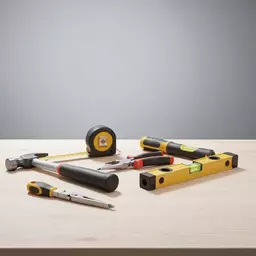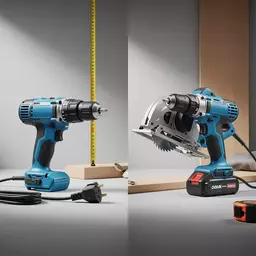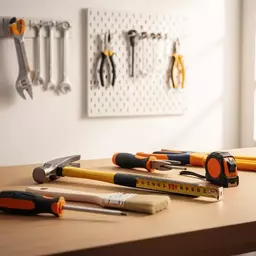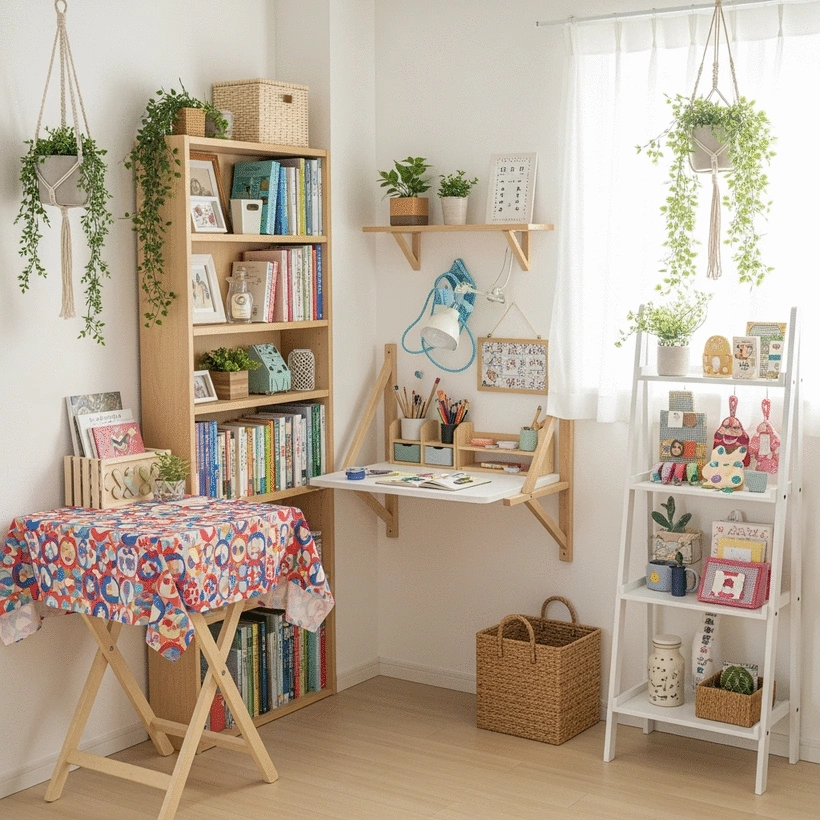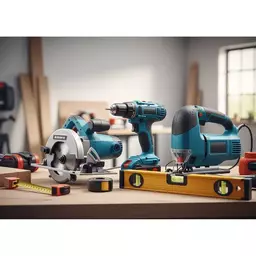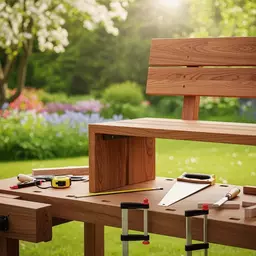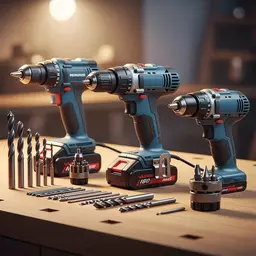Corded vs Cordless Tools Explained
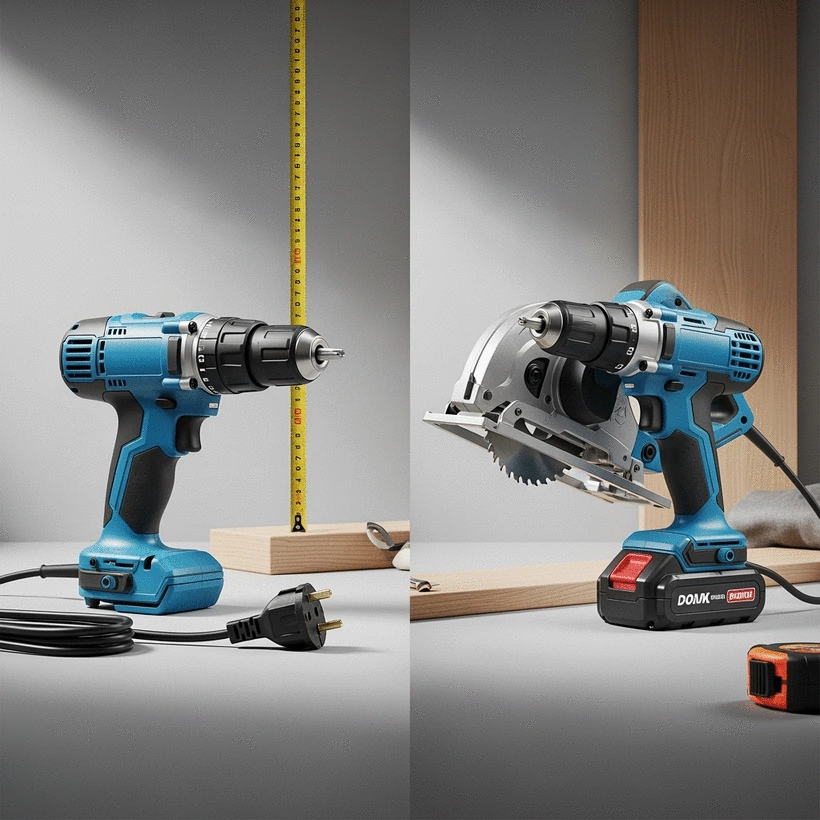
Understanding the differences between corded and cordless tools can revolutionize your DIY projects. With each type offering unique benefits, knowing your options is key to success. Are you ready to make informed decisions that elevate your craftsmanship?
What You Will Learn
- Corded tools provide consistent power, making them ideal for heavy-duty tasks like renovations and repairs.
- Cordless tools offer unmatched flexibility and mobility, especially useful for projects in tight or outdoor spaces.
- Safety precautions vary: corded tools require inspection of cords, while cordless tools need careful battery management to avoid leaks.
- Maintenance is crucial; regularly check power cords for damage in corded tools and monitor battery health in cordless tools.
- User reviews highlight features like automatic shut-off in corded tools and safety locks in cordless tools, emphasizing safety and performance.
- Understanding real-world scenarios can help you choose the right tool for specific tasks, like using cordless drills for cabinetry work.
- Brand reputation matters; well-known brands often offer reliable options with strong customer satisfaction ratings.
- Deciding between corded and cordless tools ultimately depends on your project scope, environment, and personal comfort.
Comparative Analysis of Corded vs. Cordless Tools
Understanding the key differences between corded and cordless tools is essential for making informed decisions in DIY projects. Below is a clear visual representation of their pros and cons, maintenance needs, and user preferences. For more general advice on home improvement, check out our DIY home renovation tips.
Corded Tools
- Pros: Consistent power, ideal for heavy-duty tasks, often more affordable.
- Cons: Limited mobility, reliant on power outlets.
Cordless Tools
- Pros: Portable, versatile, easy to use in tight spaces.
- Cons: Battery life can be a concern, typically higher initial investment.
Maintenance Needs
- Corded Tools: Regularly inspect the power cord for damage and ensure all moving parts are lubricated as needed.
- Cordless Tools: Keep an eye on battery health and avoid overcharging to extend battery life.
User Preferences
- Cordless tools are favored for portability and ease of use in tight spaces.
- Corded tools are appreciated for reliability during heavy-duty jobs.
Understanding the Basics of Corded vs. Cordless Tools
When diving into the world of power tools, it’s essential to understand the two main types: corded and cordless tools. Each type has its unique benefits and drawbacks, making it vital to know which one suits your needs best. As a DIY enthusiast, I often find myself choosing between the two, depending on the project at hand. Let's break it down!
Defining Corded Tools and Their Functionality
Corded tools are powered directly from an electrical outlet, giving them a consistent source of energy. This means that they tend to offer more power and are perfect for heavy-duty tasks. Whether you're working on a major renovation or simple home repairs, corded tools often provide the reliable performance needed to get the job done efficiently.
Here are some common types of corded tools you might find useful:
- Drills: Great for various applications, from hanging shelves to building furniture.
- Saws: Ideal for cutting through different materials with precision.
- Sanders: Perfect for achieving a smooth finish on your woodworking projects.
- Grinders: Useful for metalworking or sharpening tools.
Exploring Cordless Tools and Their Advancements
Cordless tools, on the other hand, operate on rechargeable batteries, providing unmatched flexibility and mobility. This makes them perfect for projects where accessibility is a concern or when you want to avoid the hassle of cords. In recent years, advancements in battery technology have significantly improved their performance, making them more powerful and reliable than ever before! If you're looking to upgrade your toolkit, consider exploring essential power tools for DIY projects.
Some popular cordless tools that you might consider include:
- Impact drivers: Great for driving screws quickly and effectively.
- Reciprocating saws: Perfect for demolition tasks, allowing you to cut in tight or awkward spaces.
- Battery-powered drills: Versatile and handy for many DIY projects.
- Angle grinders: Excellent for polishing and cutting tasks.
As someone who frequently visits local hardware stores, I can attest to the growing selection of cordless tools available today. They empower you to tackle a variety of projects with ease and efficiency, making them a fantastic choice for both seasoned builders and weekend warriors alike!
Pro Tip
When deciding between corded and cordless tools, consider your project’s requirements carefully. For instance, if you're planning a multi-day project away from power sources, investing in high-quality cordless tools with long-lasting batteries can save you time and hassle. However, for tasks requiring sustained power, such as cutting large materials or using heavy-duty drills, corded tools are typically the way to go. Always assess your specific needs before making a purchase!
Addressing Common Questions About Corded and Cordless Tools
When diving into the world of power tools, it’s common to have questions about safety and maintenance. Whether you choose corded or cordless tools, understanding their unique considerations can make a big difference in your projects. Let’s explore some of these common questions to help you make an informed decision!
First and foremost, safety is a top concern. Each tool type has its own set of precautions. For instance, corded tools often come with safety features to prevent overheating, while cordless tools need proper battery handling to avoid leaks or damage. Always check the safety guidelines provided by the manufacturers to ensure you’re using your tools correctly!
What Are the Safety Considerations for Each Tool Type?
Understanding the safety aspects of both corded and cordless tools can help you avoid accidents. Here are some key safety tips:
- Ensure cords are not frayed or damaged on corded tools.
- For cordless tools, always use the recommended battery for optimal performance.
- Wear appropriate safety gear, such as goggles and gloves, while working.
- Keep your workspace well-lit and free of hazards.
Being aware of these safety considerations can greatly enhance your overall experience while using tools. Taking the time to understand each tool type's safety features allows you to work with confidence!
How Do Corded and Cordless Tools Compare in Maintenance?
Maintenance is crucial to prolonging the life of your tools. Both corded and cordless tools have their own maintenance requirements. Let's break it down:
- Corded Tools: Regularly inspect the power cord for damage and ensure all moving parts are lubricated as needed.
- Cordless Tools: Keep an eye on battery health and avoid overcharging to extend battery life.
By following these maintenance tips, you can keep your tools in top shape for your renovation projects. At Hardware Store Guide, I emphasize the importance of proper tool care – it really pays off in the long run!
User Reviews: Insights on Safety Features and Performance
User experiences can be very enlightening! Many DIY enthusiasts and professionals share their thoughts online about the safety features of various tools. Here are a few common insights:
- Users appreciate the automatic shut-off features in many modern corded tools.
- Cordless tool users often praise the convenience of safety locks that prevent accidental activation.
- Reviews often highlight that well-designed handles reduce strain, making both types of tools easier to use safely.
Reading user reviews can help you gauge which tools prioritize safety and performance, guiding you toward the best choices for your projects!
Real-World Insights: Case Studies and User Experiences
Nothing beats real-world experiences when choosing the right tools for your renovation projects. By examining case studies and user testimonials, you can gain valuable insights into how these tools perform in various scenarios. It’s a great way to see which tool might suit your needs best!
Practical Renovation Scenarios Highlighting Tool Performance
Let’s look at some scenarios that showcase how different tools handle specific tasks:
- For detailed work like cabinetry, users often prefer cordless drills for their maneuverability.
- Corded saws excel in heavy-duty tasks, delivering consistent power for longer cuts.
- When working outdoors, cordless tools provide the freedom to move without worrying about power sources.
By understanding how tools perform in practical situations, you can make more informed decisions as you tackle your home projects!
User Testimonials on Corded vs. Cordless Tools
User testimonials are invaluable when comparing tools. Here are some key takeaways from fellow DIYers:
- Many praise cordless tools for their portability and ease of use, especially in tight spaces.
- Others highlight the reliability of corded tools, especially when it comes to heavy-duty jobs.
- Cost-effectiveness is often mentioned, with users sharing how choosing the right tool saved them time and money on their projects.
Hearing from others can help you gauge the real-world pros and cons of each tool type, making your selection process smoother.
Customer Satisfaction: Comparing Brands and Models
Customer satisfaction plays a huge role in tool selection. Brands and models often come with their own reputations based on user feedback. Some popular choices include:
- Corded Tools: Brands like DeWalt and Makita are known for their powerful corded options.
- Cordless Tools: Milwaukee and Ryobi often receive high marks for their battery performance and user-friendly designs.
Being aware of customer satisfaction ratings can significantly influence your purchasing decisions. After all, a little research goes a long way in finding the right tool for your renovation needs!
FAQs About Corded vs. Cordless Tools
Here are some frequently asked questions to help you further understand the differences and make the best choice for your projects.
Q: What are the main advantages of corded tools?
A: Corded tools offer consistent power, making them ideal for heavy-duty and prolonged tasks. They are generally more affordable and don't require battery charging.
Q: What are the main advantages of cordless tools?
A: Cordless tools provide unmatched flexibility and mobility, perfect for projects in tight spaces, outdoors, or away from power outlets. They are also highly versatile.
Q: What safety precautions should I take with corded tools?
A: Always inspect power cords for frays or damage before use. Ensure the cord isn't a tripping hazard and avoid using them in wet conditions without proper precautions.
Q: How do I maintain cordless tools, especially their batteries?
A: Keep batteries charged but avoid overcharging, which can shorten their lifespan. Store batteries in a cool, dry place. Regularly clean the tool and battery contacts.
Q: Which type of tool is better for a beginner DIY enthusiast?
A: For beginners, cordless tools often offer more ease of use and portability, especially for smaller tasks. However, corded tools can be more cost-effective for tasks requiring continuous power.
Q: Can I use both corded and cordless tools for a single project?
A: Absolutely! Many DIYers use a combination of both. For example, a corded saw for large cuts and a cordless drill for assembly offers the best of both worlds.
Summarizing the Key Differences and Recommendations
In summary, both corded and cordless tools have their advantages and drawbacks. A well-rounded understanding of these differences can help you make a smart choice for your projects. Here’s a quick overview:
Pros and Cons of Corded Tools
- Pros: Consistent power, ideal for heavy-duty tasks, often more affordable.
- Cons: Limited mobility, reliant on power outlets.
Pros and Cons of Cordless Tools
- Pros: Portable, versatile, easy to use in tight spaces.
- Cons: Battery life can be a concern, typically higher initial investment.
Versatility and Convenience: Which Tool Wins?
Ultimately, the decision comes down to your specific needs and preferences. As a DIY enthusiast myself, I’ve used both types in various projects. If you're working in a fixed location with heavy materials, corded tools might be your best bet. On the other hand, for general tasks or outdoor work, cordless tools offer unparalleled convenience! For more useful tips, consider exploring simple DIY repair tips.
Encouraging Informed Decisions for Renovation Projects
As you prepare to choose between corded and cordless tools, keep these insights in mind. Making an informed decision can set you up for success in your renovation endeavors. Remember, it’s all about finding the right tool for the job!
Final Recommendations on Choosing Between Corded and Cordless Tools
To summarize, always consider the scope of your project, the environment, and your own comfort when selecting tools. Don’t hesitate to visit your local hardware store to get a feel for different models and brands. Often, a hands-on experience can help you make the best choice! For homeowners, understanding must-have tools is essential.
Call to Action: Share Your Tool Preferences and Experiences
Now that you have a better understanding of corded and cordless tools, I encourage you to share your own preferences and experiences! Have you had any memorable projects where one type of tool outperformed the other? Your insights can help others in the DIY community make informed decisions, so let’s keep the conversation going!
Recap of Key Points
Here is a quick recap of the important points discussed in the article:
- Corded Tools: Offer consistent power, ideal for heavy-duty tasks, but have limited mobility.
- Cordless Tools: Provide portability and versatility, excellent for tight spaces, but may have battery life concerns.
- Safety Considerations: Always check cords for damage with corded tools and use recommended batteries with cordless tools.
- Maintenance Tips: Regularly inspect and maintain both types to prolong their life; lubricate moving parts for corded tools, and monitor battery health for cordless tools.
- Real-World Insights: User testimonials highlight the performance and reliability of both tool types, aiding in informed decisions.
- Final Recommendation: Choose based on your project requirements, environment, and personal comfort; hands-on experiences can help in making the best choice.
